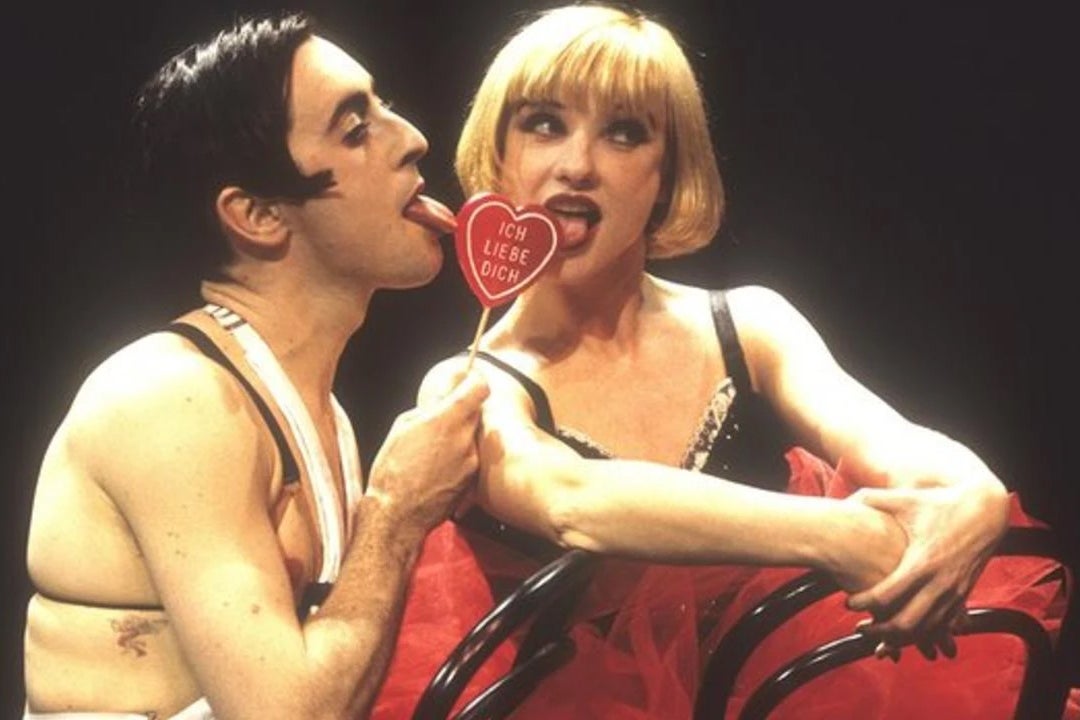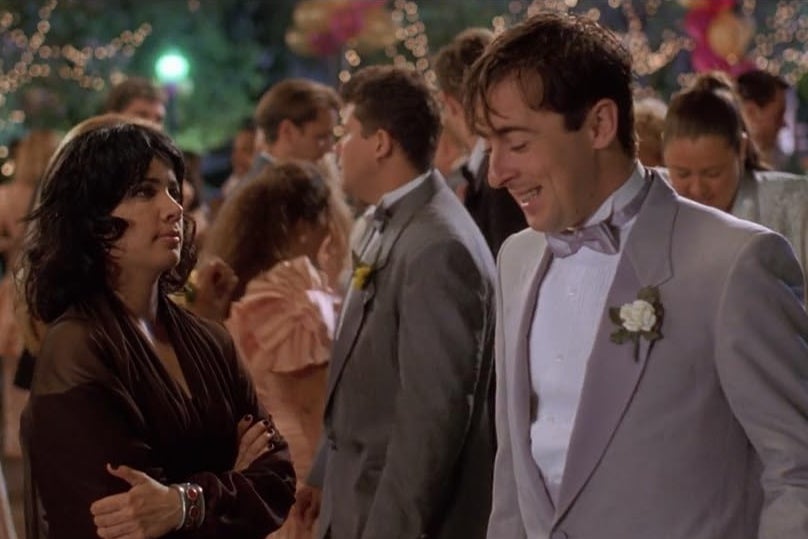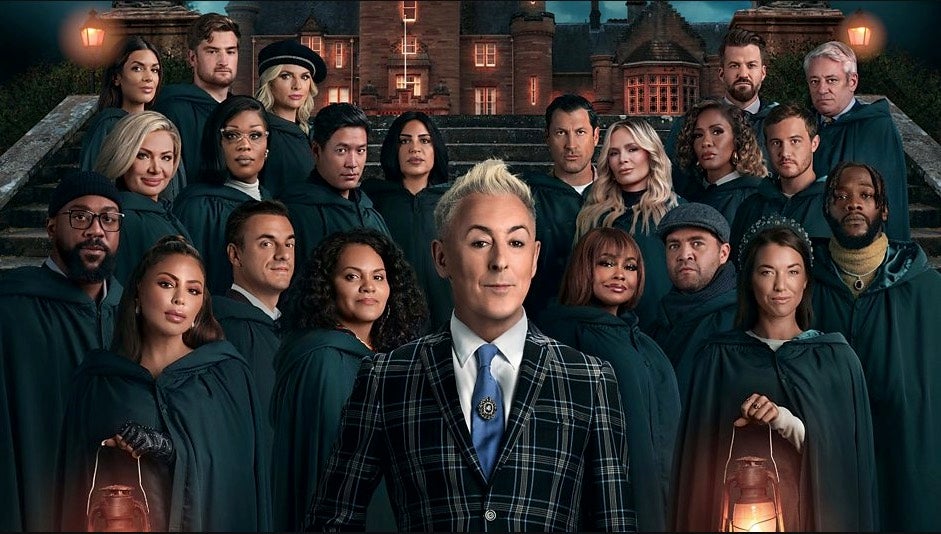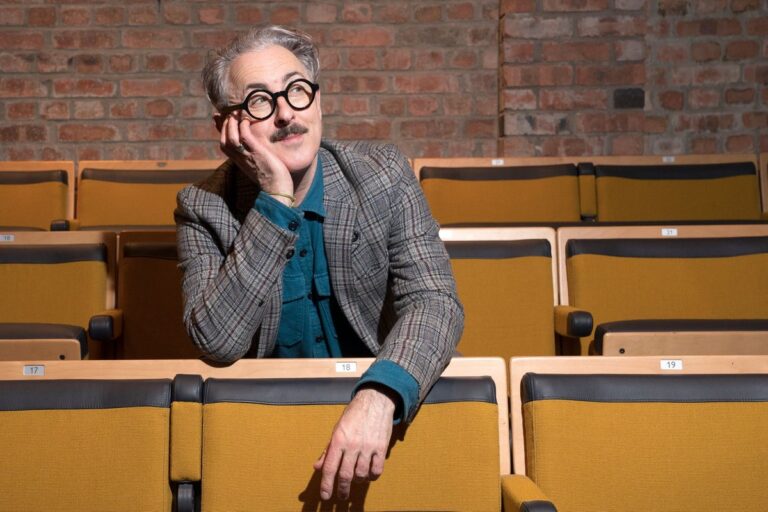Alan Cumming was bored. It was the late Nineties, he was making a film called Buddy with Rene Russo, and Hollywood wasn’t all it was cracked up to be. “I was young and wanted to have fun,” the Scottish actor recalls, “but I felt like I was always missing the party.” Russo tried to shake him from his torpor: “You’re making studio movies, you’re in Hollywood – Alan, this is as good as it gets,” she told him. How depressing, he thought.
Returning to London for some time off – “a really debauched few months” that he later wrote about in the novel Tommy’s Tale – Cumming was castby Stanley Kubrick in Eyes Wide Shut after a long audition process. The role was minuscule – one scene as a flirty hotel receptionist – but Kubrick spent a week filming it, demanding over 60 takes. Most actors would have despaired. Cumming didn’t. Instead, he was “totally reinvigorated” by Kubrick’s famed fastidiousness, rediscovering exactly what had first drawn him to acting. “Every detail was so exciting,” he remembers. There was mutual respect; Cumming believes his attitude of “I won’t be taking any s***, Mr Kubrick” helped land him the part. “We just had a lovely time together.”
The period before that had really put him through the wringer, Cumming tells me. When he headed to LA to shoot Buddy and the now-cult comedy Romy and Michele’s High School Reunion, it was off the back of his jackbooted, licentious performance as the sexually ambiguous Emcee in Sam Mendes’ gritty production of Cabaret, and of playing Hamlet at the Donmar (also under Mendes). “I nearly had a breakdown,” the 60-year-old says. “They were huge successes” – but also a “disaster” for him mentally. Not helping was Cumming’s breakup with Saffron Burrows, his co-star in the 1995 film Circle of Friends. “I was really fragile,” he says. So when he returned from Hollywood, “theatre seemed too daunting. I was thinking, ‘What will I do? Maybe I’ll start writing a book.’ I felt floaty, and then I did the thing with Stanley…”
Cumming is talking to me on Zoom from New York, where he’s taking a break from shooting Tip Toe, a new Russell T Davies series set in Manchester. He is wearing a striped top like something from a mime’s wardrobe, stroking his moustache throughout our conversation as if to check it’s still there. His grey hair swooshes back theatrically; circular glasses adorn his elfin features. A natural storyteller, he leans into anecdotes with vaudevillian relish.
I tell him GoldenEye was the first time I came across his work. In the 1995 Bond film, Pierce Brosnan’s first as 007, he played the villainous Boris Grishenko, a twitchy, pen-twiddling computer geek spouting lines like “I am invincible!” Cumming remembers struggling to spin the pen that was so integral to the plot. “So then my friend Jason Isaacs, who used to do kids’ magic parties, showed me how to do it,” he recalls. “I got it and nailed it, and then they gave me the James Bond Parker pen. I had just been practising with a Biro, so I suddenly was f***ed.”
Cumming has materialised on my laptop screen to discuss his inaugural season as artistic director of Pitlochry Festival Theatre, in the tiny Perthshire town 10 miles from where he was born. The venue celebrates its 75th anniversary next year, and Cumming’s 2026 lineup, finalised this week, is bold and eclectic – a programme that reflects his own indefatigable energy. “My personality and my spirit are at the centre of it,” says Cumming. “So what I’ve done is make a season around people who I have worked with and love or admire, or all three.” The aim, he adds, is to “have the theatre full of people who never come to the theatre. A something-for-everyone vibe.”
.jpeg)
Certainly, he delivers on the latter. From the Tony Award-winning musical Once – with its original Broadway creative team – to Scottish playwright Douglas Maxwell’s new romcom, Inexperience, and I Can Die Too, a Jean Cocteau-inspired concert play co-written by Cumming, Sally George and Frances Ruffelle, it’s a vibrant programme that “doesn’t condescend people in terms of their taste”. Intriguing, too, will be Maureen Beattie playing King Lear, and Cumming reuniting with Shirley Henderson – they first appeared together in the 1987 TV series Shadow of the Stone – for A History of Paper, a poignant love story by Oliver Emanuel, posthumously presented with songs by Gareth Williams. Elsewhere, Cumming directs I’ll Be Seeing You, with Simon Russell Beale as a playwright writing about Liberace. “It’s brilliantly meta,” says Cumming, who will also star next November as Henry Higgins in a new production of My Fair Lady.
It’s happening, it’s here, it’s now. There is authoritarianism in America and I’m terrified
Before all that, though, Ian McKellen, Graham Norton and Tales of the City author Armistead Maupin will descend on Pitlochry in January for what Cumming describes as “a weekend of queer joy”. Most notable will be McKellen starring in a new one-man play, Equinox, as well as Cumming somehow finding the time to interview Norton on stage and then lead a cast of six in Me and the Girls, a stage adaptation by Neil Bartlett of Noël Coward’s 1964 short story. “Not much normally happens in January in the theatre,” says Cumming, “so I thought, let’s do a mini-festival then, and let’s do one about queer people”.
The festival, he continues, will also be “a form of support and solidarity, at a time when LGBT people need it”, with hate crimes on the rise, hostile comment pieces in the British press, and the Trump administration issuing a flurry of anti-trans executive orders.

Tip Toe is all about this, says Cumming, who is bisexual. “It’s about the rage, and the radicalisation of certain people about various subjects, including anti-trans, anti-gay, anti-immigrants. All these things that are used by people as a smokescreen to gain power, to take attention away from the problems of our standard of living and our lack of a moral centre.” It’s a tactic, he believes, that is used “when you don’t really have any policies. Let’s just blame people who are already marginalised. It’s a slippery slope. Next, they’ll be coming for the rest of us.”
We’re on the cusp of “something really horrible”, he insists. “And in America, of course, it’s already started. Trans people have no actual rights. They don’t exist, according to the Supreme Court. All these forms of decency, and caring, and support for you if you are different, have been ripped away in Trump’s new regime.” He references the case currently underway in the US – 10 years after the Supreme Court gave same-sex couples equal marriage rights – in which the justices are being asked to rule that those rights can be ignored on religious grounds.
“We know where this is going,” he says. “Soldiers in the streets, taking citizens away, people being ‘disappeared’. It’s happening, it’s here, it’s now. It’s not imminent. There is authoritarianism, and a government that has no concern for a vast majority of its citizens and will do anything it can to stay in power… I’m terrified.”

In July, Cumming guest-hosted Jimmy Kimmel Live!, and in his opening monologue, he tells me, he “did a big rant about trans rights… People around me were like, ’You’re going to be deported.’” He worried about it the next time he left the country. Cumming has been a US citizen since 2008, and notes how frightened people are at the moment. “They’re scared for their physical safety. They’re scared when they go to the airport that they’re going to be held… I mean, those are real fears and I feel them too. But luckily, I have another home, I have another passport, another country, and another life there.”
That safe haven, Cumming believes, is also under threat, and we should be “standing up to the rhetoric of Farage, and reminding people that this refugee problem is the way it is because we don’t have a deal with Europe, because he brought us out”. He thinks we should also be “asking our government to stop trying to pander to the sort of moral lack that Farage represents”. He elaborates: “I’ve always thought this about Keir Starmer, [that] he just needs to be more of a leader, stop just trying not to get caught out all the time. It’s terrible the way that all these flags are now appearing behind him… just trying to sort of ape the aesthetics and messaging of Reform. Don’t do that. Have some f***ing balls and say that you stand up for decency, and you have a moral core that means you’re not going to let the most marginalised people in society be trampled on yet again.”
He recalls a point that he made on Sunday with Laura Kuenssberg before the election – “I said, Labour is just kind of Conservative-lite now, but [since then] it’s becoming sort of Reform lemonade.”
I mention how Twitter/X amplifies hate speech. Cumming, who once told Harry Potter producers to “f*** off” during negotiations for the role of Prof Gilderoy Lockhart (eventually played by Kenneth Branagh), has opinions on the views pushed by JK Rowling about trans people. “I thought feminism was about equality,” he says. “Women being equal with everyone else in society. And yet it appears…”
He focuses his thoughts. “I’ve kind of moved away from being obsessed with the horror of things that have come out of that quarter, of trans rights being perceived as anti-women’s rights. But there’s several things that stick out to me – and I don’t want to get into a battle at all with her, because I feel that the best way to deal with her is to give her less attention.
“But there was a thing,” he continues, “where she very kindly gave money to open a rape crisis centre in Edinburgh – a great thing to do. I mean, bravo. But then she said that trans women were not allowed… That’s transphobia. At the worst and the most awful time a person could experience, you’re saying, ‘No, I’m not going to help you, because you are trans.’ I just feel like we have to call it what it is.”

We return to theatre – specifically, to the cornucopia of celebrity-led productions increasingly dominating West End billboards, showcasing stars from Nicole Scherzinger to Sigourney Weaver. Some argue that these A-lister-led vehicles have stopped theatres from taking risks with unknown casts. “Stunt casting is a tale as old as time,” Cumming says. “I always think that if people say, ‘Oh, isn’t it terrible using all these pop stars?’, if they can’t do it [on stage], then people are not stupid. The novelty of seeing a pop star, or whatever, goes pretty fast if they’re s***.”
Speaking to Cumming, you realise there’s no protective carapace; he’s genuine, open. Not that I’m surprised. With unblinking candour, his autobiography, 2014’s bestselling Not My Father’s Son, detailed the sadistic abuse he and his older brother suffered at the hands of their father while growing up on a country estate in Angus, Scotland. A second memoir, 2021’s Baggage: Tales from a Fully Packed Life, also reflected on its lasting impact while recounting a whole lot of hedonism. “No one ever fully recovers from their past,” he wrote.
How does he feel now? “I have therapy all the time,” Cumming says. “Still I talk about it a lot. I have to. I have to remember that every experience I have is infused with what happened in my childhood. Even though I’m a happy person, I have to understand that I will always have that there with me. I’ve always got to monitor it and make sure it’s not taking over my thoughts. I think any abuse victim would tell you the same thing.” Part of the reason he wrote Baggage, he adds, was to challenge the American perception that “Alan’s recovered, everything’s tied up with a bow. A happy ending.”

Cumming, who has been married to artist Grant Shaffer since 2012, splits his time between Scotland and the US, where he’s built an extensive film and TV career since those late-Nineties wobbles. Unsurprisingly, there’s not one role for which he gets recognised the most. Yes, there are the obvious big hitters – Spy Kids, X2: X–Men United, and The Good Wife, the last of which earned him three Emmy nominations. And not to forget, his unlikely post-Kubrick assignment, on which he had “an absolute blast” – the nudge-nudge-wink-wink romp Spice World: The Movie, starring the Spice Girls at the height of Girl Power.
But there’s also The Traitors US, which Cumming presents with a shade more flamboyance than his UK counterpart, Claudia Winkleman. “What is silly is that the American version of the show is much camper and more theatrical than the British version,” he says. “That’s surely a first, as American versions of things tend to be dumbed down or lose their camp.” A possibility dawns on him. “I think that’s because of me.”
The Pitlochry Festival Theatre 2026 Season runs 16 January – 31 December 2026. For further information visit here


